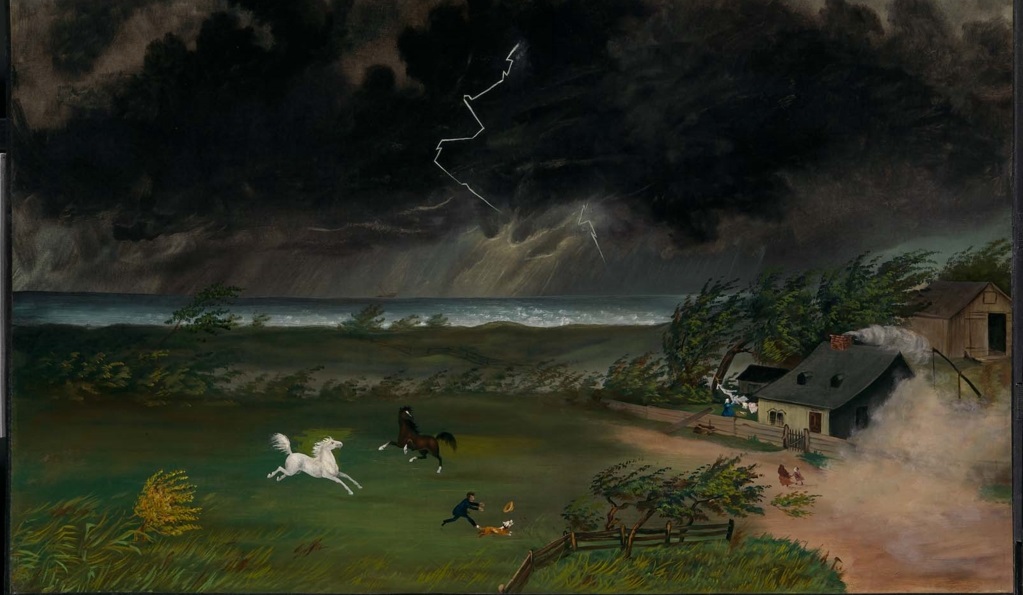Overture of Rain
The birds in the thicket lament in the breeze,
expose unfurled backs of silver leaves.
Clashing in brass, the bugler’s horn blows,
resounding in echoes booming below.
The reeded timbre of the oboe’s song
shaking the Earth with thunder strong.
Bowstrings vibrate in a taut staccato;
gracefully rain falls in a gentle legato.
Paulette Calasibetta is a retired interior designer. Her poetry has appeared on line and in print in numerous journals and anthologies.

















Paulette, as a former singer/entertainer I love your deftly fast-moving brilliant imagery in “Overture of Rain.” The wonderful instrumental comparisons perfectly reflect the weather conditions.
Ah, you feel it too….isn’t it exhilarating!
Thanks for stopping by to comment.
The musicality of weather! Love it!
Yes, indeed….an exciting symphony!
Thanks for stopping by to comment.
Paulette, I too love the lush language and musicality of this short but intense poem. I was initially thrown by what I perceived as irregularity in some of the meter until it occurred to me that the variations in meter actually mirror the intensity and unpredicability of the storm. It was then that I recognized how much I loved the effect. This is not a poem which should march in lockstep. It breathes and sings and that’s what matters. n fact, I think this would be a great piece to set to music.
I love how this poem evokes sounds rather than the usual images, and how you liken nature’s sounds to an orchestral movement. I’m also glad this was presented as a solo piece, allowing me to take in its effects, hearing the sounds through the language.
Like Brian, I was thrown at first by the meter, but it soon was quite clear that a tetrameter rhythm governed the entire piece. It was irregular, but that seemed to go along with the sense of impending danger. The use of three present participle forms in the second couplet is effective, because they are about action as well as sound.
Paulette, this is quite an orchestration, with bird chorus, brass, woodwinds, and strings all singing and playing in anticipation of the graceful rainfall gently concluding your brief overture–to the satisfaction of the audience. The term “legato” implies rain continuing for a while, as does the final line being the longest of the poem.